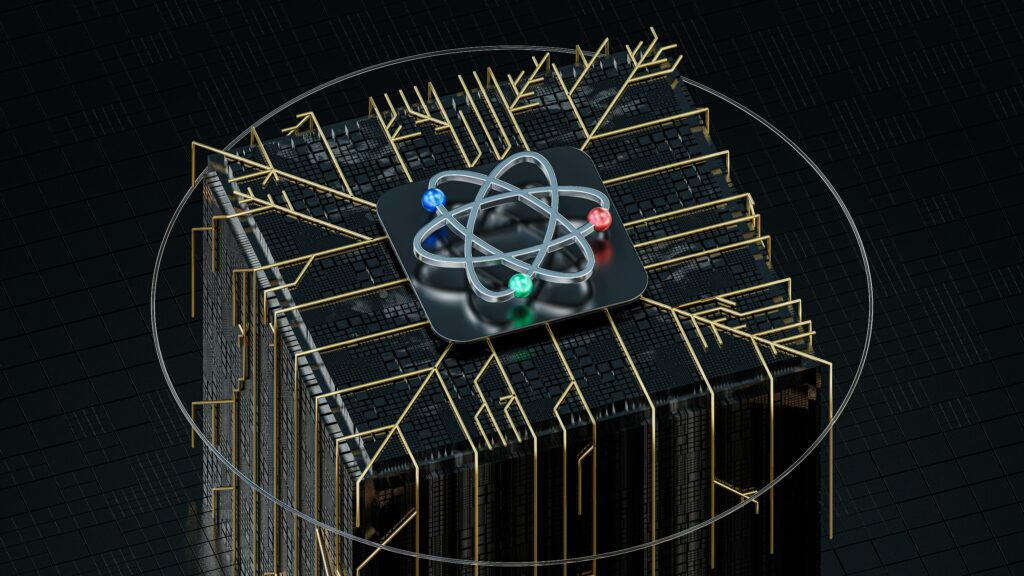Unlocking the Power of the Invisible: What Quantum Physics Is Used For


Quantum physics often sounds like a mysterious subject, reserved for scientists in white lab coats working inside high-tech laboratories. While the concepts of quantum mechanics can seem abstract and even mind-bending, this branch of physics plays a crucial role in shaping modern life. Many of the technologies we rely on every day, from computers to medical imaging machines, are made possible by the principles of quantum physics. Understanding its uses reveals not only how far humanity has come but also where we may be heading in the future.
The Foundation of Modern Electronics
The modern digital age is built on the foundation of quantum physics. At its core, quantum mechanics explains the behavior of particles at the most minute scales, such as electrons inside atoms. This knowledge allowed scientists to develop semiconductors, the essential building blocks of transistors. Transistors, in turn, power computers, smartphones, and countless other electronic devices. Without the application of quantum principles, the microchips that enable our devices to be fast and efficient would not exist.
Every time someone unlocks a phone, streams a movie, or sends an email, they are unknowingly taking advantage of quantum mechanics. The electronics revolution of the 20th century was not only a result of engineering brilliance but also a direct application of quantum theory.
Medical Breakthroughs and Healthcare Applications
Quantum physics also plays a significant role in medicine. One of the most notable examples is magnetic resonance imaging, or MRI. This life-saving diagnostic tool relies on the quantum behavior of atomic nuclei when placed inside a magnetic field. By interpreting these interactions, doctors can produce detailed images of organs, tissues, and even detect early signs of diseases like cancer.
In addition to imaging, quantum principles are used in radiation therapy for treating cancer. High-energy particles, studied and controlled through quantum physics, can target and destroy cancer cells while minimizing damage to surrounding healthy tissue. These medical applications demonstrate how abstract scientific principles can have a direct and positive impact on the quality of human life.
The World of Communication and Cryptography
Communication technologies are another area where quantum mechanics has had a profound impact. Fiber optic communication, which transmits information as pulses of light, is possible because of the way photons behave at the quantum level. This innovation enables high-speed internet connections that link people worldwide in real-time.
Even more fascinating is the emerging field of quantum cryptography. Traditional methods of securing data can be vulnerable to hacking, but quantum communication uses the principles of quantum mechanics to create encryption that cannot be broken without detection. This technology promises a future where financial transactions, government communications, and personal data may be completely secure from cyber threats.
Energy Production and Emerging Technologies
Quantum physics is also helping us rethink the concept of energy. Solar panels, for instance, depend on the quantum behavior of electrons to convert sunlight into electricity. Improvements in solar technology continue to rely on a deeper understanding of quantum effects, making renewable energy sources more efficient and accessible.
Beyond solar energy, researchers are exploring quantum principles to design new materials for energy storage, such as advanced batteries and supercapacitors. These innovations could revolutionize how we power everything from electric cars to entire cities.
Quantum Computing: The Next Frontier
The most exciting use of quantum physics lies in the field of quantum computing. Unlike classical computers, which process information using bits that are either zero or one, quantum computers use qubits. Thanks to the quantum property of superposition, qubits can exist in multiple states simultaneously, enabling these machines to perform complex calculations at speeds unimaginable for traditional computers.
Quantum computers hold the potential to revolutionize industries such as pharmaceuticals by simulating molecular interactions to discover new drugs, finance by optimizing investment strategies, and climate science by modeling complex environmental systems. While still in development, quantum computing represents one of the most transformative applications of quantum physics.
Everyday Technologies with Quantum Roots
Even some of the most common technologies are linked to quantum discoveries—lasers, used in everything from barcode scanners to eye surgery, function based on quantum principles. LED lights, now standard in households, also rely on quantum effects to produce efficient lighting. These everyday tools demonstrate how quantum physics, although invisible to the naked eye, influences nearly every aspect of modern life.
Looking Toward the Future
The applications of quantum physics continue to expand. Scientists and engineers are developing quantum sensors that can detect underground structures or monitor brain activity with unprecedented accuracy. Space exploration may also benefit, with quantum-based navigation systems providing precise guidance that does not rely on GPS satellites.
As quantum technologies continue to mature, their influence will only grow. They may address global challenges such as clean energy, cybersecurity, and advanced medical treatments. What once seemed like pure theory now has practical and powerful consequences for society.
From Theory to Transformation
Quantum physics is more than a scientific curiosity; it is a force that drives progress in nearly every aspect of modern life. From the electronics in our pockets to the medical machines saving lives, from secure communication to the promise of quantum computing, this field has already changed the world and continues to shape our future.
Though the subject can appear complex, its applications remind us that science is not just about understanding the universe—it is about improving human existence. Quantum physics may work on the tiniest scales, but its impact is undeniably vast.
